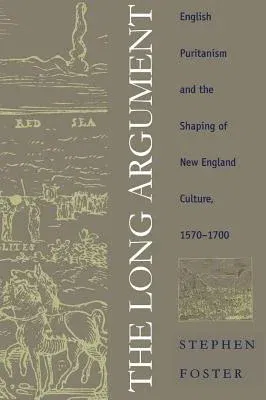In this wide-ranging study Stephen Foster explores Puritanism in England
and America from its roots in the Elizabethan era to the end of the
seventeenth century. Focusing on Puritanism as a cultural and political
phenomenon as well as a religious movement, Foster addresses parallel
developments on both sides of the Atlantic and firmly embeds New England
Puritanism within its English context. He provides not only an elaborate
critque of current interpretations of Puritan ideology but also an
original and insightful portrayal of its dynamism.
According to Foster, Puritanism represented a loose and incomplete
alliance of progressive Protestants, lay and clerical, aristocratic and
humble, who never decided whether they were the vanguard or the remnant.
Indeed, in Foster's analysis, changes in New England Puritanism after
the first decades of settlement did not indicate secularization and
decline but instead were part of a pattern of change, conflict, and
accomodation that had begun in England. He views the Puritans' own
claims of declension as partisan propositions in an internal controversy
as old as the Puritan movement itself. The result of these stresses and
adaptations, he argues, was continued vitality in American Puritanism
during the second half of the seventeenth century.
Foster draws insights from a broad range of souces in England and
America, including sermons, diaries, spiritual autobiographies, and
colony, town, and court records. Moreover, his presentation of the
history of the English and American Puritan movements in tandem brings
out the fatal flaws of the former as well as the modest but essential
strengths of the latter.


